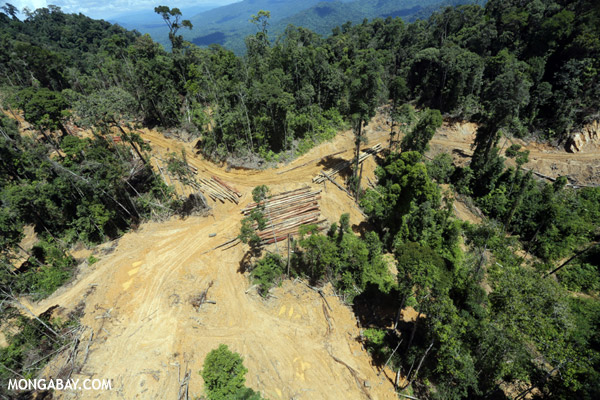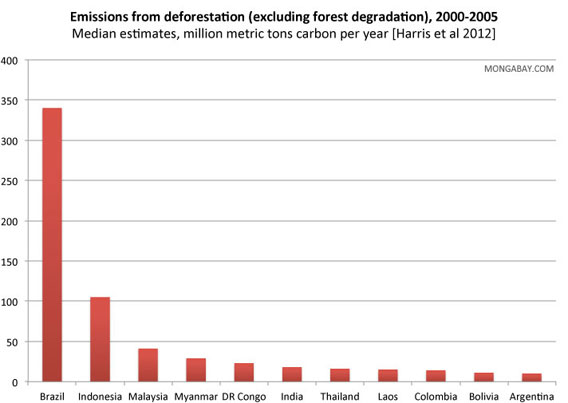 Rainforest in Sabah. Photo by Rhett A. Butler. |
Negotiators in Warsaw have reached formal agreement on Reducing Emissions from Deforestation and Degradation (REDD+), a program that aims to compensate tropical countries for protecting their forests.
After seven years of discussions, countries approved the final REDD+ text on Friday. The document includes provisions on safeguards; addressing drivers of deforestation like conversion for plantations; measuring, reporting and verification (MRV) of forest-related emissions; reference levels for measuring reductions in emissions from deforestation; and finance.
Ecosystem Marketplace, an information clearinghouse on payments for ecosystem services programs, said the document opens up “financing of all phases of REDD implementation – from readiness and capacity-building, through piloting, and to payments for performance.”
“The final document also makes results-based finance contingent on safeguards being met, lays out clear rules for transparency, and sets minimum reporting requirements before countries can qualify for results-based finance.”
 Deforestation caused by logging in Borneo. Photo by Rhett A. Butler. |
According to the REDD+ Safeguards Working Group, a group of NGO’s, the text “also contains language recognizing the importance of incentivizing ‘non carbon benefits’, i.e. benefits beyond carbon.”
“This provides political momentum for designing REDD+ programs that will maximize outcomes for communities and biodiversity as well as carbon,” said the body, which called the development a “landmark decision”.
“This is a landmark decision on safeguards. There is now a clear requirement that countries must submit a report on how they are implementing safeguards before they can receive results-based finance for their REDD+ activities,” said Rosalind Reeve of Ateneo School of Government in Manila. Reeve is a spokesperson for the REDD+ Safeguards Working Group.
“While we’ve achieved a milestone in Warsaw, there is still important work to do next year to ensure that the Safeguards Information System is effective and the reports will be comprehensive. This is essential to provide assurance to indigenous peoples and local communities, civil society and investors that safeguards are really and truly addressed and respected before countries can access results-based finance.”
Formal agreement may provide a catalyst for the stalled REDD+ market, which has suffered uncertainty and lack of demand for carbon credits. REDD+ credits are presently limited to the voluntary market, which primarily serves individuals and companies who want to “offset” their emissions, rather than compliance-based markets.
Deforestation and forest degradation are estimated to account for about a tenth of greenhouse gas emissions from human activities.

Countries with the highest emissions from deforestation between 2000 and 2005 according to the new study. Click image to enlarge.